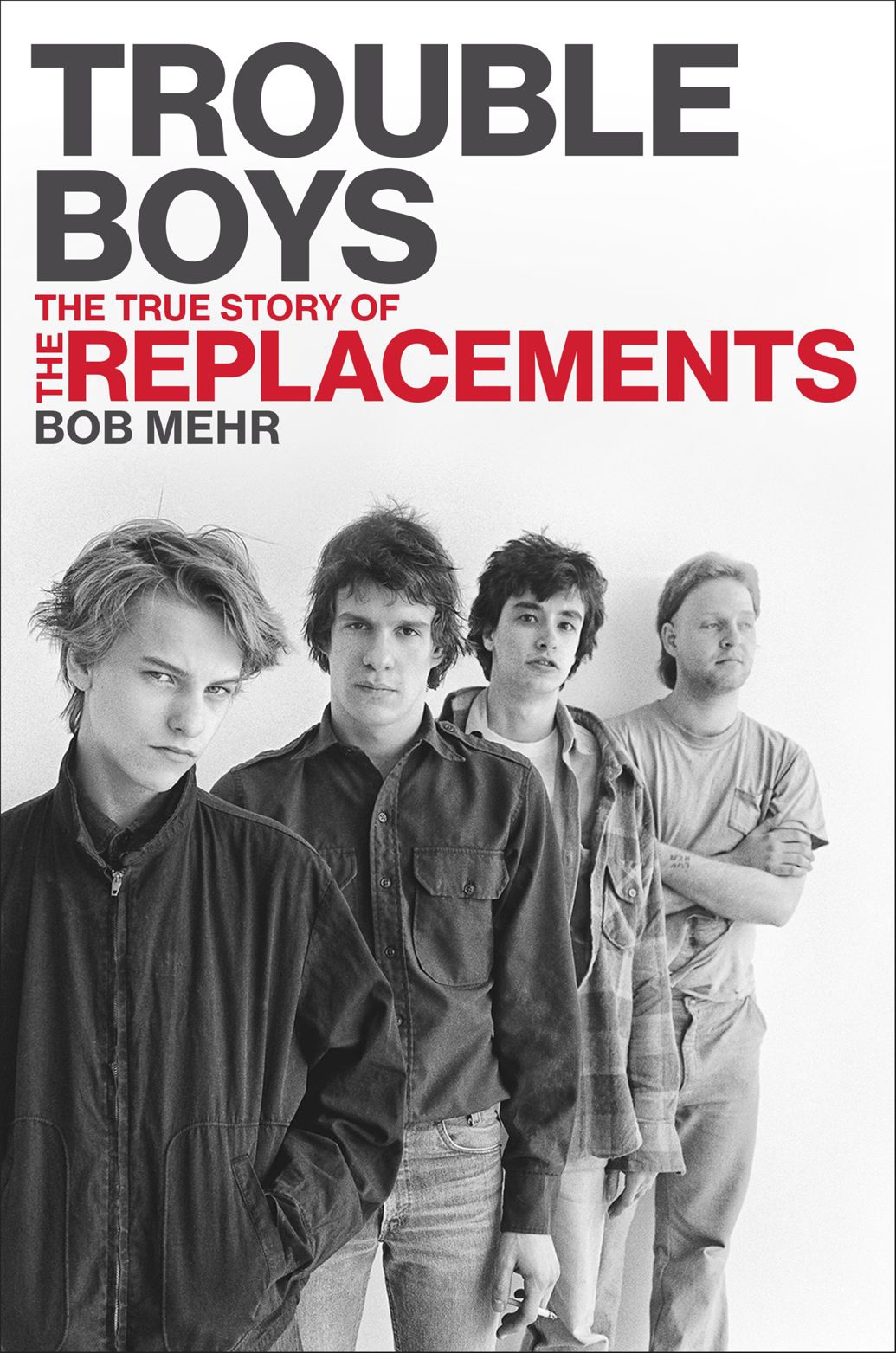Book Review: Trouble Boys: The True Story of The Replacements, written by Bob Mehr (Da Capo, 2016)
Trouble Boys is as much a dissection of the music industry as it is the compelling narrative of an era’s media darlings.
Memphis-based author Bob Mehr is a no-frills communicator, crafting a moving chronicle that kept the interest of a reader who doesn’t even dig the alt-Americana that put the book’s subjects on the pop culture map.
The Replacements formed in Minneapolis in 1978 and put out three LPs on a local label, Twin/Tone, before signing in 1985 with Sire as part of the major label raid on “alternative” music. The band delivered four more LPs before calling it a day.
It’s a brutal tale on many fronts. In the first 200 pages, it becomes clear that the member driving the band’s authenticity was axe man Bob Stinson.
He was a loner who worshipped the playing of Yes guitarist Steve Howe, and was booted from the band in 1986. He died nine years later of poor health brought on by drug and alcohol abuse.
His little brother, bassist Tommy, approved the dismissal of his troubled big brother, selling him out and jangling all the way to the spotlights.
Even their managers and friends were mistreated by the band, especially frontman Paul Westerberg, who comes across for the duration of The Replacements career as a songwriting savant cloaked as a miserable, selfish oaf.
“I was playing the character of the creep who demands to be treated like a king,” Westerberg reflectively says at one point.
Once Bob Stinson left, the rockin’ dropped several notches, the corporate influences came in and the band was willing to sell its soul for fame.
They sought producers who knew when to tweak the EQ and the sound grew increasingly benign and commercial as the years passed. The sellout factor was huge for The Replacements; they didn’t make music for the people anymore. They made it for the corporate wallets and the lowest common denominator, as the book details.
The search for a producer who could give them a hit single was incessant, but at least they were realistic about life outside of music.
“I don’t want to push a broom, and that’s what I’d be doing if I wasn’t in this band,” Tommy Stinson says.
At times, such as the events leading up to a showcase at New York’s Irving Plaza in 1984, the book reads like a well-crafted fictional account of a rock band, with all the clichés firmly in place. Drugs, girls, booze, wrecked tour buses and hotel rooms all make appearances.
The story goes like this: band from Midwest accidentally hits upon a formula the suits dig. Band gets cover story in the Village Voice that includes all of its drunken antics, disregard for the audience, and self-importance. Band has big show lined up in NYC, books an unannounced tune-up show in advance, which the major labels hear about and attend. Band uses tune-up gig to goof off and clown around when it should be impressing.
Instead of alienating the Square John and Jill A&R crews, they are delighted by the irreverence and enticed into signing the band.
The stories include hearty accounts of life on the road, although it’s clear The Replacements found love from their crowd and the critics from the start, pulling in $350 a show in the early 80s when most bands – even the good ones – were battling for gas money.
Cracking the day’s first drink at noon, chasing and coveting the success of R.E.M., and insulting anyone trying to help them; it should make even the staunchest fan doubt their heroes.
“We’d go and knock on the road manager’s door to get an advance for the week so we could burn it,” Westerberg says at one point, symbolic for the torching of their career.
There is nothing wrong with pop-music success. The difference is a band reared in a culture of truth and musical honesty, that of the late ’70s and early ’80s punk scene, deciding that it had to grow. Was it coincidence that the growth meant seeking the ears of the jocks and jockettes? It’s a great question the Trouble Boys poses.
The book is not just a bio of a band but an examination of just how the music industry and the corporations that run it carry on. They worry about image and metrics and airplay and pop mixes and clothing and demographics and … man, that takes the heart of a music lover, so be prepared.
However, by the end of The Replacement’s career, they became reflective. Westerberg was pushed toward a solo career and the rest of the guys went their own ways.
As sad as the story is, Trouble Boys is as thorough a study of a band as one could wish for. The writing is clear, wisely straight up and, for rock ‘n’ roll, as accurate as can be expected in a land of myth and blurry recall.
Trouble Boys is available locally at Schuler Books and Music, 2660 28th St. SE, Grand Rapids.





